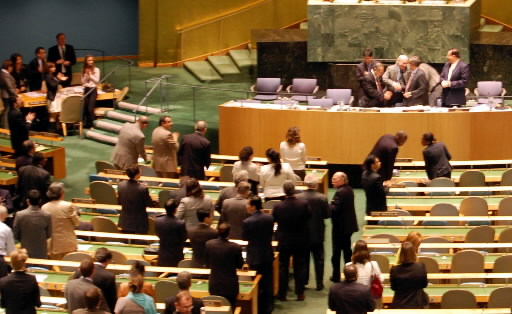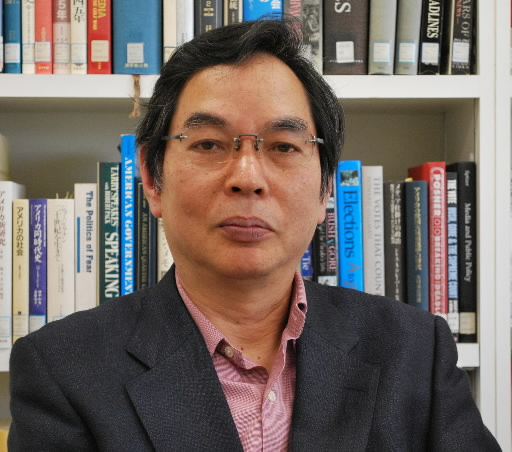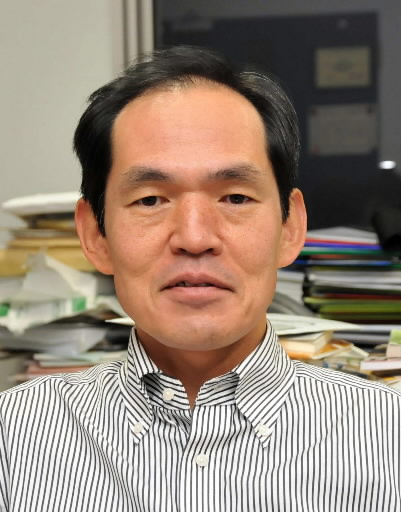Inhumanity of nuclear weapons is stated clearly in the Final Document
Jun. 1, 2010
by Yumi Kanazaki, Staff Writer, dispatched from New York
The language in the Action Plan for nuclear abolition was watered down after each revision of conference documents. The diluted language in the Final Document adopted at the NPT Review Conference, which closed on May 28, underscores the difficult road ahead toward nuclear abolition. Meanwhile, promising aspects also appeared. Of particular note is the fact that the inhumanity of nuclear weapons was stated clearly: "The Conference expresses its deep concern at the catastrophic humanitarian consequences of any use of nuclear weapons." This language is also in line with the appeal of the A-bombed cities of Hiroshima and Nagasaki.
The wording "the need for all States at all times to comply with applicable international law, including international humanitarian law" is not found in the list of items making up the Action Plan, but in the text constituting the preamble. This corresponds to the argument made by Hiroshima and Nagasaki where nuclear weapons are rejected not simply due to their destructive power, but in their capacity as weapons contrary to human life.
Echoing the plan for nuclear abolition set forth by U.N. Secretary-General Ban Ki-moon, the language "consideration of negotiations on a nuclear weapons convention" is also included in the document. These passages in the text are the most awkward to the nuclear weapon states, but their inclusion can be considered a victory of efforts made by some non-nuclear states, including Norway, Austria, and Switzerland, which maintained a positive view with regard to a nuclear weapons convention.
The Final Document of the 2010 conference can also be thought of as a step forward, albeit a small step, in terms of the "unequivocal undertaking" of nuclear abolition, adopted at the 2000 review conference. The nuclear superpower of the United States, under the Obama administration, had put emphasis on the success of the conference, an entirely different approach from that taken by the former Bush administration at the 2005 conference. The fresh approach undoubtedly provided a tailwind for the meeting.
It is regrettable, though, that Japan failed to show its presence fully as the only nation to have suffered nuclear attack. Japan did present a joint statement calling for the need for nuclear disarmament and non-proliferation education, with 41 countries in favor of the idea, but neither Prime Minister Yukio Hatoyama nor Foreign Minister Katsuya Okada attended the gathering. With the efforts of some non-nuclear states bearing fruit, how did this attitude on the part of the only A-bombed nation appear to others?
The challenge, as the future unfolds, is how to put the Final Document into practice. If efforts are not made to realize the Action Plan ahead of schedule, achieving nuclear abolition will remain a distant prospect. The aging A-bomb survivors desperately wish to see nuclear weapons eliminated from the earth while they are alive. The nuclear weapon states, in particular, must take to heart that the Action Plan is a list of items that they must implement, at the very least, rather than viewing these items as non-binding targets.
by Junichi Hayashi, Staff Writer
The Chugoku Shimbun interviewed Hiroshi Oshima, 62, a professor in the Department of Law at Hiroshima Shudo University and a specialist on American studies, who once served as Kyodo News bureau chief in New York, and Kazumi Mizumoto, 53, a professor at the Hiroshima Peace Institute at Hiroshima City University and a specialist on international politics, on their assessment of this year's NPT Review Conference.
by Yoko Nitta, Staff Writer
Major progress was not made at the conference, but the international momentum for the elimination of nuclear weapons was maintained. There were also positive developments, including the U.S. and the U.K. announcements citing the number of their nuclear warheads and Indonesia's declaration of its policy of ratifying the Comprehensive Test Ban Treaty (CTBT). The U.S. attitude, in willing to get involved in the conference, holds great significance as well.
I feel disappointment, too, about the contents of the Final Document, as, for instance, a clear path toward nuclear abolition is not seen. However, this conference, originally a forum in which nations with conflicting interests iron out the differences of their opinions, is not, by nature, a venue for producing a groundbreaking view. The four weeks of this conference have served to sort out current arguments and confirm the intention of the international community, which is set to move in pursuit of nuclear abolition. However, neither the Japanese prime minister nor foreign minister attended the conference, and Japan's appeal as an A-bombed nation was extremely poor.
In the future, I would like to keep an eye on how the document will be implemented. Even though a proposal for the denuclearization of the Middle East has been presented, the effort will not move forward unless Israel gets involved. If a strongly conservative Republican administration takes power from the Obama administration in the United States in two years, U.S. nuclear policy will change as well. We need to verify the execution of the document in a calm manner.
by Sakiko Masuda, Staff Writer
As the conference was able to adopt the Final Document, the minimum task could be fulfilled. It can be said that the previous NPT Review Conference in 2005 dumped the accumulated progress up to that point into the trash, but the conference this time succeeded in getting the process back on the original track. Meanwhile, the clear statement about the vision for a "nuclear weapons convention" in the Final Document, though not made concrete, is a small step deserving of praise.
There was the possibility that Iran would not agree with regard to holding a conference seeking the denuclearization of the Middle East, with Israel in mind. However, Arab nations, with Egypt the leader, successfully worked in concert, blocked unilateral action, and managed to include the proposal in the document.
At the same time, it is regrettable that specific target years for the elimination of nuclear weapons were not included in the document. There is a faction in France that turns its back on nuclear disarmament and Russia has adopted the stance that it cannot accept further reduction of nuclear weapons beyond the new disarmament treaty made between the United States and Russia. The five nuclear weapon states have, as one, made no attempt to set a deadline for nuclear abolition. This is a major challenge in the future. We should not criticize the Final Document as inadequate, but perceive it positively and pursue a world without nuclear weapons by the international community as a whole.
(Originally published on May 30, 2010)
Related articles
NPT Review Conference closes after unanimous adoption of Final Document (May 31, 2010)
The language in the Action Plan for nuclear abolition was watered down after each revision of conference documents. The diluted language in the Final Document adopted at the NPT Review Conference, which closed on May 28, underscores the difficult road ahead toward nuclear abolition. Meanwhile, promising aspects also appeared. Of particular note is the fact that the inhumanity of nuclear weapons was stated clearly: "The Conference expresses its deep concern at the catastrophic humanitarian consequences of any use of nuclear weapons." This language is also in line with the appeal of the A-bombed cities of Hiroshima and Nagasaki.
The wording "the need for all States at all times to comply with applicable international law, including international humanitarian law" is not found in the list of items making up the Action Plan, but in the text constituting the preamble. This corresponds to the argument made by Hiroshima and Nagasaki where nuclear weapons are rejected not simply due to their destructive power, but in their capacity as weapons contrary to human life.
Echoing the plan for nuclear abolition set forth by U.N. Secretary-General Ban Ki-moon, the language "consideration of negotiations on a nuclear weapons convention" is also included in the document. These passages in the text are the most awkward to the nuclear weapon states, but their inclusion can be considered a victory of efforts made by some non-nuclear states, including Norway, Austria, and Switzerland, which maintained a positive view with regard to a nuclear weapons convention.
The Final Document of the 2010 conference can also be thought of as a step forward, albeit a small step, in terms of the "unequivocal undertaking" of nuclear abolition, adopted at the 2000 review conference. The nuclear superpower of the United States, under the Obama administration, had put emphasis on the success of the conference, an entirely different approach from that taken by the former Bush administration at the 2005 conference. The fresh approach undoubtedly provided a tailwind for the meeting.
It is regrettable, though, that Japan failed to show its presence fully as the only nation to have suffered nuclear attack. Japan did present a joint statement calling for the need for nuclear disarmament and non-proliferation education, with 41 countries in favor of the idea, but neither Prime Minister Yukio Hatoyama nor Foreign Minister Katsuya Okada attended the gathering. With the efforts of some non-nuclear states bearing fruit, how did this attitude on the part of the only A-bombed nation appear to others?
The challenge, as the future unfolds, is how to put the Final Document into practice. If efforts are not made to realize the Action Plan ahead of schedule, achieving nuclear abolition will remain a distant prospect. The aging A-bomb survivors desperately wish to see nuclear weapons eliminated from the earth while they are alive. The nuclear weapon states, in particular, must take to heart that the Action Plan is a list of items that they must implement, at the very least, rather than viewing these items as non-binding targets.
Comments by Hiroshima Mayor Tadatoshi Akiba and Hiroshima Governor Hidehiko Yuzaki
by Junichi Hayashi, Staff Writer
Hiroshima Mayor Tadatoshi Akiba: "Agreement by all NPT signatories holds significance"
It is regrettable that a specific year to begin negotiations for nuclear disarmament was not included in the Final Document. But it is significant that all NPT signatories, including nuclear weapon states, agreed to begin taking concrete action in pursuit of the elimination of nuclear weapons. We have little time left by 2020, the year by which the City of Hiroshima and Mayors for Peace aim to abolish nuclear weapons. What is required is to continue efforts to generate further momentum in order to create the political will on the part of each government for tackling nuclear abolition.
Hiroshima Governor Hidehiko Yuzaki: "Strong will of international community is seen"
The Final Document is an important achievement in that it shows the strong will of the international community with regard to nuclear disarmament. I expect that the nuclear weapon states and my own nation will exercise further leadership, and that each country will take positive and concrete action in line with the document of agreements. I hope that the leaders of every nation will, in part to accelerate the move toward nuclear disarmament, visit Hiroshima, deepen their resolve for abolition, and feel confidence in reconstruction and peace by looking at the state of Hiroshima, which has recovered from the ruins of the atomic bombing.
Interviews with Hiroshima professors on the outcome of the NPT Review Conference
The Chugoku Shimbun interviewed Hiroshi Oshima, 62, a professor in the Department of Law at Hiroshima Shudo University and a specialist on American studies, who once served as Kyodo News bureau chief in New York, and Kazumi Mizumoto, 53, a professor at the Hiroshima Peace Institute at Hiroshima City University and a specialist on international politics, on their assessment of this year's NPT Review Conference.
Hiroshi Oshima, professor in the Department of Law at Hiroshima Shudo University: "International momentum was maintained"
by Yoko Nitta, Staff Writer
Major progress was not made at the conference, but the international momentum for the elimination of nuclear weapons was maintained. There were also positive developments, including the U.S. and the U.K. announcements citing the number of their nuclear warheads and Indonesia's declaration of its policy of ratifying the Comprehensive Test Ban Treaty (CTBT). The U.S. attitude, in willing to get involved in the conference, holds great significance as well.
I feel disappointment, too, about the contents of the Final Document, as, for instance, a clear path toward nuclear abolition is not seen. However, this conference, originally a forum in which nations with conflicting interests iron out the differences of their opinions, is not, by nature, a venue for producing a groundbreaking view. The four weeks of this conference have served to sort out current arguments and confirm the intention of the international community, which is set to move in pursuit of nuclear abolition. However, neither the Japanese prime minister nor foreign minister attended the conference, and Japan's appeal as an A-bombed nation was extremely poor.
In the future, I would like to keep an eye on how the document will be implemented. Even though a proposal for the denuclearization of the Middle East has been presented, the effort will not move forward unless Israel gets involved. If a strongly conservative Republican administration takes power from the Obama administration in the United States in two years, U.S. nuclear policy will change as well. We need to verify the execution of the document in a calm manner.
Kazumi Mizumoto, professor at the Hiroshima Peace Institute at Hiroshima City University: "Disappointment about the Final Document without a specific timeline for nuclear abolition"
by Sakiko Masuda, Staff Writer
As the conference was able to adopt the Final Document, the minimum task could be fulfilled. It can be said that the previous NPT Review Conference in 2005 dumped the accumulated progress up to that point into the trash, but the conference this time succeeded in getting the process back on the original track. Meanwhile, the clear statement about the vision for a "nuclear weapons convention" in the Final Document, though not made concrete, is a small step deserving of praise.
There was the possibility that Iran would not agree with regard to holding a conference seeking the denuclearization of the Middle East, with Israel in mind. However, Arab nations, with Egypt the leader, successfully worked in concert, blocked unilateral action, and managed to include the proposal in the document.
At the same time, it is regrettable that specific target years for the elimination of nuclear weapons were not included in the document. There is a faction in France that turns its back on nuclear disarmament and Russia has adopted the stance that it cannot accept further reduction of nuclear weapons beyond the new disarmament treaty made between the United States and Russia. The five nuclear weapon states have, as one, made no attempt to set a deadline for nuclear abolition. This is a major challenge in the future. We should not criticize the Final Document as inadequate, but perceive it positively and pursue a world without nuclear weapons by the international community as a whole.
(Originally published on May 30, 2010)
Related articles
NPT Review Conference closes after unanimous adoption of Final Document (May 31, 2010)










